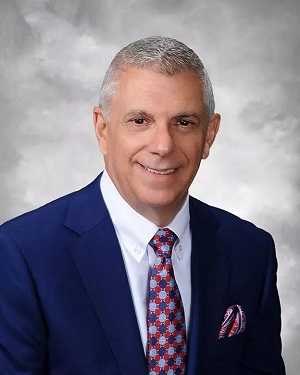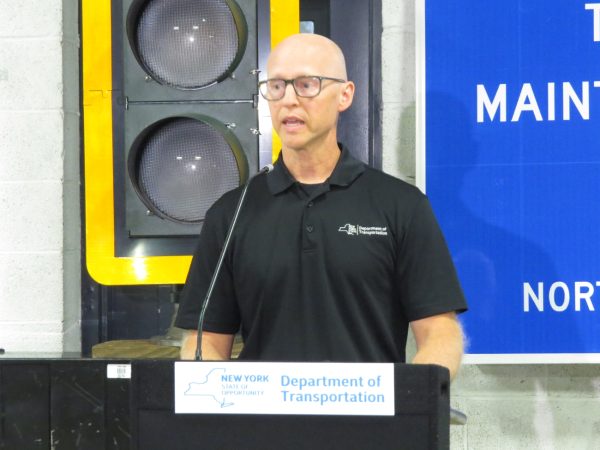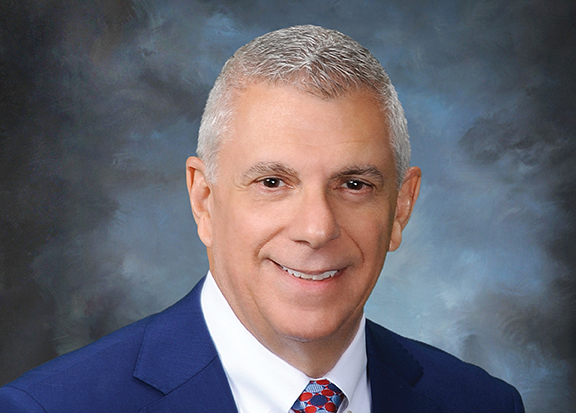Get our email updates
Stay up-to-date on the companies, people and issues that impact businesses in Syracuse, Central New York and beyond.
What's New
Upcoming Events
CNYBJ Job Board

Named in honor of Rome native, fallen Syracuse police officer Michael Jensen ROME — After completing a feasibility study, Rome is moving forward with plans for the Michael E. Jensen Recreation and Civic Center on Floyd Avenue. The facility will be named after Rome native Michael Jensen, a Syracuse police officer who killed in the […]
Get Instant Access to This Article
Become a Central New York Business Journal subscriber and get immediate access to all of our subscriber-only content and much more.
- Critical Central New York business news and analysis updated daily.
- Immediate access to all subscriber-only content on our website.
- Get a year’s worth of the Print Edition of The Central New York Business Journal.
- Special Feature Publications such as the Book of Lists and Revitalize Greater Binghamton, Mohawk Valley, and Syracuse Magazines
Click here to purchase a paywall bypass link for this article.
Named in honor of Rome native, fallen Syracuse police officer Michael Jensen
ROME — After completing a feasibility study, Rome is moving forward with plans for the Michael E. Jensen Recreation and Civic Center on Floyd Avenue.
The facility will be named after Rome native Michael Jensen, a Syracuse police officer who killed in the line of duty in during an incident in the Onondaga County town of Salina in April 2024.
Rome Mayor Jeffrey Lanigan outlined plans for the new center during his State of the City address on Tuesday, May 27 at the Griffiss Institute.
Plans call for building the center on property that many thought would become a new Rome YMCA until the organization’s board of directors scrapped the plan in favor of renovating its existing building.
“Their decision not to proceed leaves a major gap in services and opportunities that our residents were counting on, a gap we’re now determined to fill,” Lanigan said in his remarks.
The new center — which will also be known as the Legacy Center — will serve as a “lasting tribute” to those who have shaped and served the City of Rome.
“At its heart will be Legacy Hall where community members will have the opportunity to honor individuals whose knowledge, talent, and service have left an enduring mark on the City of Rome,” Lanigan said.
Kimberly Rogers, Mayor Lanigan’s chief of staff, told CNYBJ in a July 9 email, “We are currently working with a consultant on a preliminary design for the project and have not yet selected a contractor.”
The Legacy Center will include the largest, single indoor turf facility in the region, capable of supporting 11-on-11 soccer, field hockey, lacrosse, and other field sports in all four seasons, “solidifying Rome’s position as a premier regional recreation community,” Lanigan contended.
The Rome mayor also noted that Oneida County Executive Anthony Picente, Jr. had announced in his State of the County address the development of the Runway, a major indoor complex at Griffiss Business & Technology Park, which will be designed as a large scale, regional tourism destination.
“County Executive Picente and I are united in our commitment to ensure that these two exciting projects complement and support each other with each offering unique programming and strengthening the other,” Lanigan said.
The Legacy Center will be a multipurpose facility that provides the Rome community with “premier” field space for local organizations to use year-round. It will ensure accommodation for all types of sports and events, making the new facility a “greater asset to the community while encouraging success and financial stability,” Lanigan said in his remarks.
Sports is a major focus for the facility, but it will also be a place for indoor movies, fairs, game nights, and civic events. It will feature many amenities that residents have requested, including an indoor walking track, a fitness center, and community space for public use.
Through discussions with both ICAN and Oneida County, the City of Rome sees the “critical need” for child-care services in our area. So, in addition to providing typical programming and services, Lanigan also said the Legacy Center will be home to a 10,000-square-foot child-care center.
“This is going to continue to help to serve the diverse needs of Rome families. Forward-thinking investments like this place Rome in the best possible position for the future,” Lanigan said.

St. Luke’s reuse plans slowly but surely moving foward
NEW HARTFORD — It’s been almost two years since St. Luke’s Hospital closed and the new Wynn Hospital opened. While people may be wondering what is to become of the former hospital’s campus, government and economic-development officials are still hard at work figuring out those next steps. Dubbed Reimagine St. Luke’s, the project is a
Get Instant Access to This Article
Become a Central New York Business Journal subscriber and get immediate access to all of our subscriber-only content and much more.
- Critical Central New York business news and analysis updated daily.
- Immediate access to all subscriber-only content on our website.
- Get a year’s worth of the Print Edition of The Central New York Business Journal.
- Special Feature Publications such as the Book of Lists and Revitalize Greater Binghamton, Mohawk Valley, and Syracuse Magazines
Click here to purchase a paywall bypass link for this article.
NEW HARTFORD — It’s been almost two years since St. Luke’s Hospital closed and the new Wynn Hospital opened.
While people may be wondering what is to become of the former hospital’s campus, government and economic-development officials are still hard at work figuring out those next steps.
Dubbed Reimagine St. Luke’s, the project is a cooperative effort between Mohawk Valley Health System (MVHS), which still owns the former St. Luke’s Hospital property, along with Oneida County, the town of New Hartford, and Mohawk Valley EDGE.
Throughout 2024, organizers held a series of workshops with the community and various stakeholders to gather individuals’ ideas for reusing the property, which spans 128 acres.
“We had a ton of engagement from the public meetings,” CJ Hanrahan, VP of marketing and business engagement at Mohawk Valley EDGE, says. Working with Fu Wilmers Design, organizers took in all that information and evaluated community wants versus community needs.
The result was a master concept plan, presented last October.
“The master plan outlined a diverse type of neighborhood that had mixed-use housing, green space, park space,” Oneida County Executive Anthony J. Picente, Jr. says. It also included space for light manufacturing, retail, or even a hotel, with much of the development focusing on the 53 acres where the hospital and multiple other buildings sit.
“The layout of the site presents a lot of opportunity,” Picente says. The location is also a prime one, situated near several major roadways with easy access into Utica, Rome, and neighboring suburbs. It’s also right across the street from Utica University.
Currently, Reimagine St. Luke’s is finalizing a facilities study that took a look at the existing buildings and evaluated whether they could be reused or torn down.
Unfortunately, the county executive says, the best course of action appears to be tearing the buildings down to make way for new development.
“We’re looking at upwards of $10 million to $15 million in demolition costs,” he adds. “There’s not a lot of money out there for demolition.”
While the main hospital isn’t viable for reuse, there are three other buildings that are feasible, Hanrahan notes. Mohawk Valley EDGE is also exploring funding sources for demolition costs including U.S. Environmental Protection Agency loans or grants as well as U.S. Housing and Urban Development Community Development Block Grants.
Oneida County is working to develop initiatives and incentives for new housing development, which Picente hopes will make the property attractive to developers. The plan calls for 450 housing units, which will help Oneida County begin to address its need for 6,000 units over the next decade, according to a housing inventory study conducted last year.
The goal is to have all necessary studies completed so any potential developer has all the necessary information, Hanrahan says.
“It’s an exciting opportunity for our generation to build the next thing,” he adds.

Nexus Center fulfills promise of drawing crowds, boosting economy
UTICA — If you build it, they will come. That was the premise behind the Utica University Nexus Center, and it has more than proven true. The 169,440-square-foot facility at 400 Oriskany St. West opened in November 2022 with a goal to attract sports tournaments. It has done that in spades, including hosting the 2024
Get Instant Access to This Article
Become a Central New York Business Journal subscriber and get immediate access to all of our subscriber-only content and much more.
- Critical Central New York business news and analysis updated daily.
- Immediate access to all subscriber-only content on our website.
- Get a year’s worth of the Print Edition of The Central New York Business Journal.
- Special Feature Publications such as the Book of Lists and Revitalize Greater Binghamton, Mohawk Valley, and Syracuse Magazines
Click here to purchase a paywall bypass link for this article.
UTICA — If you build it, they will come.
That was the premise behind the Utica University Nexus Center, and it has more than proven true.
The 169,440-square-foot facility at 400 Oriskany St. West opened in November 2022 with a goal to attract sports tournaments. It has done that in spades, including hosting the 2024 International Ice Hockey Federation (IIHF) Women’s World Championship. The international ice-hockey tournament, which included 10 national women’s hockey teams and spanned 12 days, drew total attendance of more than 68,000 across the 29 games played. The event was the highest-ever attended IIHF Women’s World Championship in the United States.
The tournament generated an estimated $3.4 million in spending around the area by those who attended.
The Utica University Nexus Center, which features three 200-foot by 85-foot multipurpose playing surfaces that can be utilized as ice sheets or turf, hosts more than just hockey, says Chief Revenue Officer Keith Veronesi. “It’s a multi-function recreation space, not just hockey.”
The Nexus Center is also attached via walkway to the Adirondack Bank Center at the Utica Auditorium next door, adding a fourth surface.
“We just held the American Cornhole League here,” Veronesi says. That event drew more than 600 people and aired on ESPN.
The Nexus Center has also hosted a number of expos including The Home Show and an antique clock show.
“The building is just about at capacity most of the time,” Veronesi says, with the summer months being especially busy with events like indoor soccer.
It’s a good problem to have but can come with challenges, he notes. The Nexus Center will continue to work with USA Hockey for events, which means the organization books venue time far in advance to guarantee the location. That makes the venue less available for other events.
“We’re becoming a destination to these types of events,” Veronesi says. The facility itself is a draw, but so is its location, situated near the NYS Thruway and easy to get to. It offers lots of hotels, restaurants, and other nearby activities that help make the Nexus Center a popular choice.
Located in downtown Utica, the Nexus Center joins other recent projects including the Wynn Hospital and the City of Utica’s Harbor Point development that are revitalizing the downtown district.
“I think the Nexus Center has been pivotal to the revitalization,” Veronesi contends.
The center employs a small full-time operations team and brings in more staff to turn over the building before and after events.

Oneida County releases agriculture plan for the next five years
UTICA, N.Y. — Oneida County on Thursday issued a five-year strategic plan for strengthening the region’s agricultural economy, protecting farmland, and expanding opportunities for farmers

NYSDOT CNY director David Smith retires
SYRACUSE, N.Y. — David Smith has been among the officials providing information on the ongoing Interstate 81 viaduct-replacement project — and he is set to retire on Friday, Aug. 1. Smith, Central New York regional director of the New York State Department of Transportation (NYSDOT), will conclude 33 years of service with the department, Marie
Get Instant Access to This Article
Become a Central New York Business Journal subscriber and get immediate access to all of our subscriber-only content and much more.
- Critical Central New York business news and analysis updated daily.
- Immediate access to all subscriber-only content on our website.
- Get a year’s worth of the Print Edition of The Central New York Business Journal.
- Special Feature Publications such as the Book of Lists and Revitalize Greater Binghamton, Mohawk Valley, and Syracuse Magazines
Click here to purchase a paywall bypass link for this article.
SYRACUSE, N.Y. — David Smith has been among the officials providing information on the ongoing Interstate 81 viaduct-replacement project — and he is set to retire on Friday, Aug. 1.
Smith, Central New York regional director of the New York State Department of Transportation (NYSDOT), will conclude 33 years of service with the department, Marie Therese Dominguez, NYSDOT commissioner, said in making the announcement.
For the past nine years, Smith has led department operations in the six counties that make up region 3: Cayuga, Cortland, Onondaga, Oswego, Seneca, and Tompkins.
His duties have involved overseeing hundreds of staff and working on numerous projects that will have an impact on the region, including the I-81 project, which is described as the “largest undertaking in Department of Transportation history.”
“I have every confidence that our dedicated team will see Central New York’s projects through to successful completion,” Smith said in the NYSDOT announcement. “This community has long been my home, and I know the professionals that make up every component of the Department of Transportation in Central New York will continue to prioritize its needs, working to ensure our infrastructure remains modern, reliable, resilient, and safe for all. As I look forward to this next chapter, I do so with deep gratitude and pride in what we have accomplished together.”
Smith began his career with NYSDOT in 1992, working as a junior engineer in the Long Island traffic and safety group. Smith steadily advanced through the ranks before making the move to Central New York in 2003, where he served as resident engineer in Cayuga and Seneca counties, and later, Onondaga County. Smith was promoted to regional director of operations for Central New York in 2006 and was named Central New York regional director in 2016.
“After 33 years of outstanding service to the Department of Transportation and the Central New York community, we wish Dave Smith the very best as he transitions into retirement after decades of exemplary service,” Dominguez said. “Dave has tirelessly guided operations for DOT in Central New York through an unprecedented period of growth, and his insight, knowledge, and exemplary direction have proven to be invaluable.”
Andy Stiles will serve as the acting regional director in Central New York until a permanent replacement is appointed. Stiles has worked for the NYSDOT for 27 years and has served as regional director in Binghamton since May 2024.

Downtown Syracuse Foundation accepting applications for Syracuse Cultural Festivals Fund grants
SYRACUSE, N.Y. — The Downtown Syracuse Foundation, Inc. is accepting applications for grants through the Syracuse Cultural Festivals Fund with $135,000 available. Festivals planned to

Retiring leader reflects on MVHS tenure
UTICA — The main thing that drew Darlene Stromstad to Mohawk Valley Health System (MVHS) as its new CEO seven years ago is also one of the accomplishments she’s most proud of from her time leading the regional health system with about $650 million in annual revenue and more than 3,000 full-time employees. That signature
Get Instant Access to This Article
Become a Central New York Business Journal subscriber and get immediate access to all of our subscriber-only content and much more.
- Critical Central New York business news and analysis updated daily.
- Immediate access to all subscriber-only content on our website.
- Get a year’s worth of the Print Edition of The Central New York Business Journal.
- Special Feature Publications such as the Book of Lists and Revitalize Greater Binghamton, Mohawk Valley, and Syracuse Magazines
Click here to purchase a paywall bypass link for this article.
UTICA — The main thing that drew Darlene Stromstad to Mohawk Valley Health System (MVHS) as its new CEO seven years ago is also one of the accomplishments she’s most proud of from her time leading the regional health system with about $650 million in annual revenue and more than 3,000 full-time employees.
That signature accomplishment was opening the new Wynn Hospital in downtown Utica in October 2023.
During her first health-care job in North Dakota, Stromstad had a front-row seat as the CEO of that organization was planning to build a new hospital. “Being part of that transformation, I knew I would always be involved in transformative health care,” she recalls.
While she feels privileged to be part of that process in the Mohawk Valley, the journey was not without its ups and downs.
“Some of the obstacles, you expect along the way,” she says. “You expect you’re going to find them. It was a little more personal in the attacks here.”
Despite the negative feedback from some, MVHS and Stromstad successfully oversaw construction of the new Wynn Hospital during the COVID pandemic and celebrated its opening nearly two years ago.
“That gives us the opportunity to look up and out, to make progress and improve health-care delivery,” she says of the new hospital.
Now, Stromstad is looking ahead in a new direction — retirement. She announced earlier this year that she will retire at the end of 2025.
With retirement ahead of her, Stromstad reflects on some of the things she’s most proud of during her tenure at MVHS besides opening the Wynn Hospital.
During the pandemic, while the Wynn was under construction, MVHS’s St. Elizabeth Medical Center and St. Luke’s Hospital served as hub hospitals to serve the community. That meant on top of dealing with pandemic illness, MVHS also served in other ways during the pandemic, including as a vaccination site.
“People really stepped up here,” Stromstad says of the staff. “I was really proud of how our people in the health system behaved.”
Stromstad pointed to growth in the organization’s residency program, which is crucial for training new providers.
She’s also proud of how hard MVHS has worked to embed itself in the community in order to best serve that community.
Stromstad is also proud of the progress the organization has made since opening the Wynn, which involved merging two separate facilities — each with their own staff and own way of doing things – into one unified facility.
“Those first few months were rough, really, really rough,” she recalls. Things were so rough, in fact, that MVHS made it a priority to focus on improving things in 2024.
“It feels very, very positive in here,” Stromstad says of today’s environment within Wynn Hospital.
Other highlights of her tenure include becoming a heart care center, implementing a system-wide electronic medical-records system, and even introducing artificial intelligence transcription to help doctors take notes so they can focus on the patients.
“There are constantly innovations that change the way we work,” Stromstad says.
She feels confident now that the hospital and MVHS as a whole are in a good place where she can turn the reins over to someone new.
“I will miss the energy that you get in a hospital that’s different than any other building you walk into,” she says of her impending retirement. While she won’t miss the early mornings, she’ll miss interacting with a diverse community daily.
Stromstad has some advice for those looking to fill her shoes — or those of any health-care administrator.
“If you let people hijack your focus, then you’re not doing your job,” she says. “Not everybody likes change. They are going to take a swipe or two at you, but you can’t let it distract you. You’ve got to have thick skin and rise above it.”
The search for her replacement is already underway and going well. While not involved in the search, Stromstad confirmed that the search committee is reviewing candidates with an eye at final interviews toward the end of summer.
“I think health care is the most interesting place to work,” she says. “The jobs are varied. The work is very meaningful. There’s really important work to be done.”

Work progresses on $370M Turning Stone Evolution project
VERONA — The Oneida Indian Nation’s $370 million Turning Stone Evolution project is forging full-steam ahead, on target to open in 2027. The effort includes the new 258-bed Crescent Hotel; a new conference center that doubles the resort’s existing conference space with eight new meeting rooms, two new ballrooms, an outdoor courtyard and three outdoor event
Get Instant Access to This Article
Become a Central New York Business Journal subscriber and get immediate access to all of our subscriber-only content and much more.
- Critical Central New York business news and analysis updated daily.
- Immediate access to all subscriber-only content on our website.
- Get a year’s worth of the Print Edition of The Central New York Business Journal.
- Special Feature Publications such as the Book of Lists and Revitalize Greater Binghamton, Mohawk Valley, and Syracuse Magazines
Click here to purchase a paywall bypass link for this article.
VERONA — The Oneida Indian Nation’s $370 million Turning Stone Evolution project is forging full-steam ahead, on target to open in 2027.
The effort includes the new 258-bed Crescent Hotel; a new conference center that doubles the resort’s existing conference space with eight new meeting rooms, two new ballrooms, an outdoor courtyard and three outdoor event spaces, and a new 2,000-space parking garage; the new Salt Seafood & Raw Bar; and an onsite medical center for employees and guests.
Some elements of the project, such as the transformation of the former Lava Nightclub into NY Rec & Social Club, are already complete while work continues on the rest. The Crescent celebrated a topping ceremony in April, marking significant progress on that part of the project.
“It’s moving along on time, on budget, slated to open in 2027,” Oneida Nation VP for Strategic Communications and Community Engagement Joel Barkin says. “Now, it’s really taking form.”
Also moving ahead is construction of the parking garage, which is about halfway complete, he adds, while the Grand Expo 165,000-square-foot conference and events center is being framed out.
“We’re already starting to prospect for business,” Barkin says of the Grand Expo. Staff are already meeting with event and meeting planners interested in the space and will soon be taking reservations for the hotel and Grand Expo.
The additional space is needed based on current demand, especially for weddings, which is expected to grow. “There’s more interest and demand than supply,” Barkin says of Turning Stone’s event space.

PHOTO CREDIT: ONEIDA INDIAN NATION
The new hotel will bring the total number of rooms close to 1,000, while the expanded meeting space provides options to host more events. “We are able to go after much larger meetings and events,” Barkin adds.
Once complete, the project will put Turning Stone in competition with major convention venues, he says. Turning Stone will be the largest event venue in upstate New York and one of the three venues of the same size in the state.
“It opens up an entire universe of potential new partners and prospects to us,” he says.
The project is expected to generate a $616 million one-time economic impact, create 3,600 one-time jobs, and generate $22.1 million in state and local tax revenues.
“We think everything we’re offering complements what we’re building,” Barkin says of the Turning Stone Evolution project.
Turning Stone Resort Casino already includes five hotels, two spas, five golf courses, more than 20 dining options, a 125,000-square-foot gaming floor, a sports-betting lounge, The Showroom concert venue, a 5,000-seat arena, and several nightlife venues.
The Oneida Indian Nation has also been busy renovating its Point Place Casino located in the hamlet of Bridgeport, in the town of Sullivan. That project, coming in at $50 million, is doubling the existing gaming floor, adding a 100-room hotel with event space and a lobby café, adding a full-service restaurant, reimagining the Fireside Lounge, doubling parking, and adding new retail space.
The first phase of the Point Place project, which includes the gaming and retail expansion and café, will open later this summer, followed by the hotel, restaurant, and other amenities later in the fall.
The Oneida Indian Nation will also open its fifth Verona Collective cannabis dispensary in Bridgeport later this summer.

Picente says county purchase of former golf course helped secure Chobani
ROME — Oneida County Executive Anthony Picente, Jr. believes the county’s purchase of the former Mohawk Glen Golf Course was a big factor in Chobani’s decision to build a 1.4 million square foot, $1.2 billion facility on the Triangle site at Griffiss International Airport in Rome. The golf course, which previously served the former Griffiss
Get Instant Access to This Article
Become a Central New York Business Journal subscriber and get immediate access to all of our subscriber-only content and much more.
- Critical Central New York business news and analysis updated daily.
- Immediate access to all subscriber-only content on our website.
- Get a year’s worth of the Print Edition of The Central New York Business Journal.
- Special Feature Publications such as the Book of Lists and Revitalize Greater Binghamton, Mohawk Valley, and Syracuse Magazines
Click here to purchase a paywall bypass link for this article.
ROME — Oneida County Executive Anthony Picente, Jr. believes the county’s purchase of the former Mohawk Glen Golf Course was a big factor in Chobani’s decision to build a 1.4 million square foot, $1.2 billion facility on the Triangle site at Griffiss International Airport in Rome.
The golf course, which previously served the former Griffiss Air Force Base, is situated adjacent to the Triangle site.
Oneida County bought the 160-acre golf course at 880 Perimeter Road W. in Rome for $1.4 million from owner Michael DeSalvio. The Oneida County Board of Legislators authorized the purchase during the Nov. 13, 2024 meeting, and the transaction closed in early January of this year.

PHOTO CREDIT: ONEIDA COUNTY
“So, I do envision at least right now that any development there … would be focused on Chobani’s desire to add a second phase. Now, could that change? I suppose it could,” says Picente, who spoke with CNYBJ in a phone interview on July 10.
Prior to Chobani’s interest and subsequent major announcement, Oneida County had envisioned developing the site into a semiconductor supply-chain campus. The county had even secured a $23.6 million award under the state’s Focused Attraction of Shovel-Ready Tracts New York (FAST NY) grant program.
The FAST NY grant doesn’t apply to the golf course property, the Oneida County executive noted.
Oneida County has also applied for second round of FAST NY, which also would be just for the Triangle parcel because of its size, which is larger than the golf course property, the county executive says.
Picente said the initial vision for a semiconductor supply-chain campus came about “because we were hearing so much about it,” referencing both Micron Technology Inc. (NASDAQ: MU) in the town of Clay in Onondaga County, as well as Wolfspeed (NYSE: WOLF) in Marcy.
“In economic development, a lot of times, when you’re courting companies of that size or looking at that large of footprint, they look for some buffer space and other areas for not just staging but for future development, so that’s where the focus is right now,” Picente says.
He went on to say that Oneida County had been in discussions with the golf course owner about the property even before the talks with Chobani started and before the state awarded the county the grant to help develop the Triangle site.
Even if Chobani hadn’t selected the Triangle site for its project, Oneida County still wanted to purchase the golf course property because “the benefit of that Triangle [site] is greater with the golf course property.”
“Because everything in that area is somewhat landlocked to a degree, it makes it all the more important that those parcels that are connected remain connected,” he says.
Picente told CNYBJ that Chobani had reached out to Oneida County in the middle of 2024 about the Triangle site but the discussions got “more serious” in September of last year.
“It culminated when [Chobani founder and CEO Hamdi Ulukaya] himself came to meet with me in October,” says Picente. “We were moving toward an agreement.”

Jazz at Beeches Manor to benefit Nascentia Neighborhood capital campaign
ROME — Nascentia Health says it has scheduled an exciting community event called Jazz at Beeches Manor for Aug. 10 with an all-day lineup of jazz performances, free of charge, from 11:30 a.m. to 8 p.m. at 7900 Turin Road in Rome. It benefits the Nascentia Neighborhood capital campaign, which supports the renovation of the
Get Instant Access to This Article
Become a Central New York Business Journal subscriber and get immediate access to all of our subscriber-only content and much more.
- Critical Central New York business news and analysis updated daily.
- Immediate access to all subscriber-only content on our website.
- Get a year’s worth of the Print Edition of The Central New York Business Journal.
- Special Feature Publications such as the Book of Lists and Revitalize Greater Binghamton, Mohawk Valley, and Syracuse Magazines
Click here to purchase a paywall bypass link for this article.
ROME — Nascentia Health says it has scheduled an exciting community event called Jazz at Beeches Manor for Aug. 10 with an all-day lineup of jazz performances, free of charge, from 11:30 a.m. to 8 p.m. at 7900 Turin Road in Rome.
It benefits the Nascentia Neighborhood capital campaign, which supports the renovation of the 72-acre Beeches property in Rome into an aging-in-place community for adults 55 and older.
The completed project will offer independent-living units, integrated health care, and wellness-focused amenities to “promote independence, vitality, and connection.” The campaign is now in its public phase and recently received a $4 million donation from The Griffin Charitable Foundation.
Jazz at Beeches Manor is described as a “family-friendly” event that is open to the public and will have food, refreshments, and merchandise for purchase.
 The 2025 Jazz at Beeches Manor music lineup includes talented artists from across Central New York. The headlining act is Gap Mangione and the New Big Band.
The 2025 Jazz at Beeches Manor music lineup includes talented artists from across Central New York. The headlining act is Gap Mangione and the New Big Band.
The lineup also includes the CNY Jazz Youth Orchestra; The Hot Club of Syracuse with Joe Davoli, Joe Ferlo, Tyrin Conti & Matt Vacanti; The Octobermen with Paul Dowd, Bill Scranton, Jeff Ruzich & Evan DuChene; The 10th Mountain Army Division Jazz Combo; and The John Rohde Tribute Band with Andrea Miceli, Jeff Stockham, Rick Montalbano, Jimmy Johns, Ronnie France & Joe Carello.
 Nascentia Health and the Nascentia Neighborhood Capital Campaign Strategy Committee on April 17 announced the public phase of the Nascentia Neighborhood Capital Campaign and recognize The Griffin Charitable Foundation for its $4 million donation for the project.
Nascentia Health and the Nascentia Neighborhood Capital Campaign Strategy Committee on April 17 announced the public phase of the Nascentia Neighborhood Capital Campaign and recognize The Griffin Charitable Foundation for its $4 million donation for the project.
In recognition of the foundation’s “transformative” gift, Nascentia Health said the Nascentia Neighborhood’s future on-site medical building will be named The Griffin Charitable Foundation Medical Complex. The organization called it a “lasting tribute to Dorothy and Bill Griffin, whose selfless giving continues to shape the Copper City and beyond.”
“We are incredibly grateful to The Griffin Charitable Foundation for choosing to invest in this project,” Kate Rolf, president and CEO of Nascentia Health, said in a statement. “This gift will help our company continue delivering exceptional healthcare, creating strong communities, and executing a vision designed to meet the needs of aging adults. I am honored that the Nascentia Neighborhood Capital Campaign has already been propelled forward by a transformative donation.”
Phase one of the project is already complete with the renovation and reopening of Beeches Manor as an event venue and restaurant/pub open to the community for lunch and dinner.
Get our email updates
Stay up-to-date on the companies, people and issues that impact businesses in Syracuse, Central New York and beyond.
